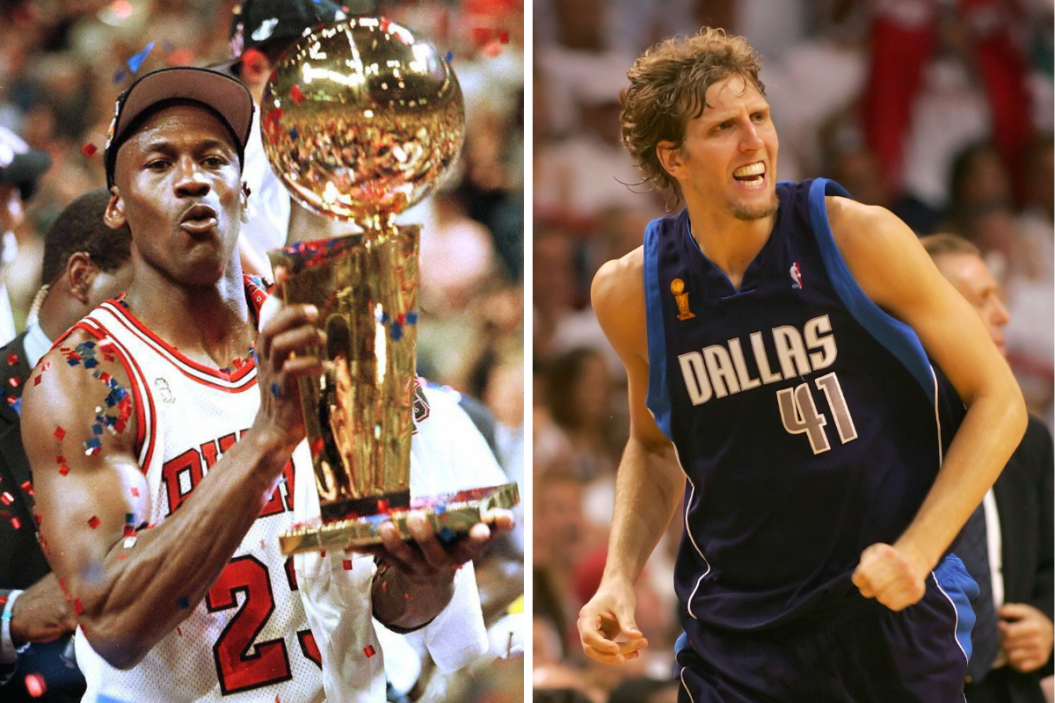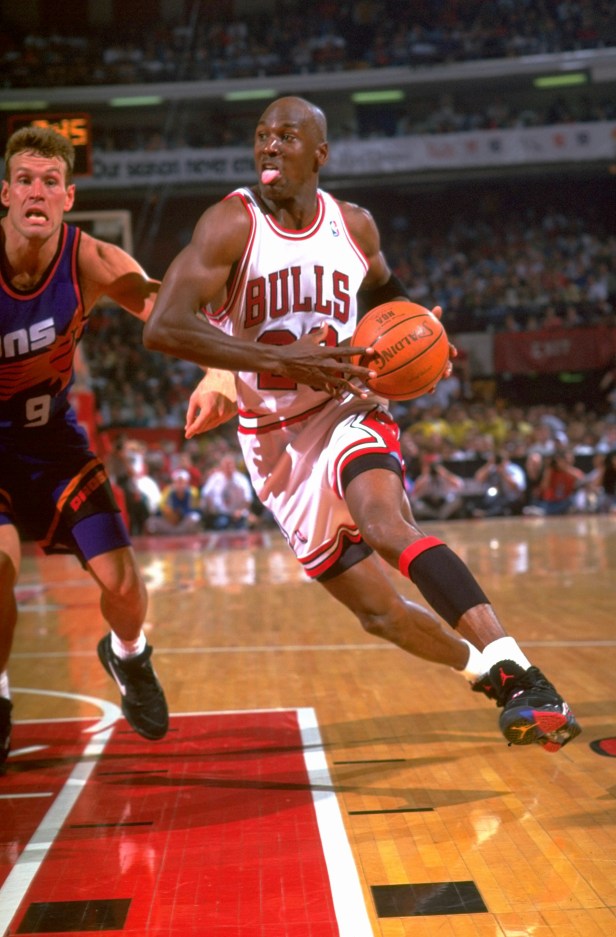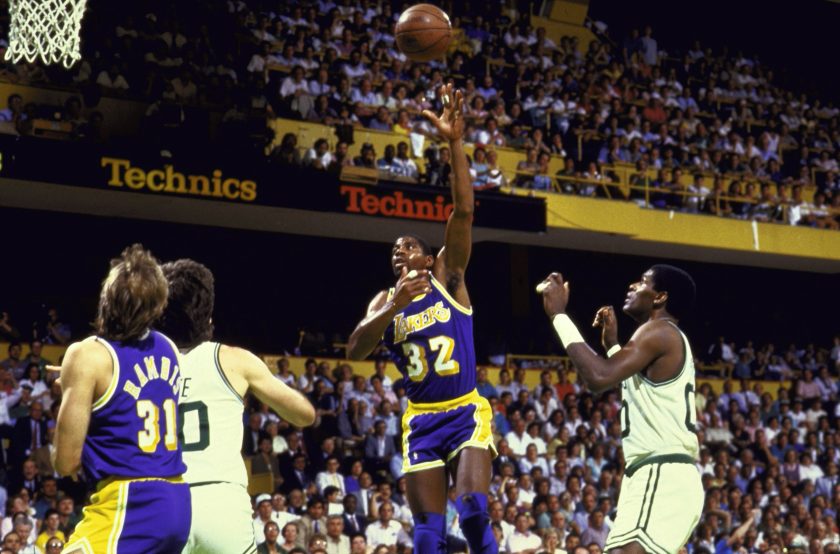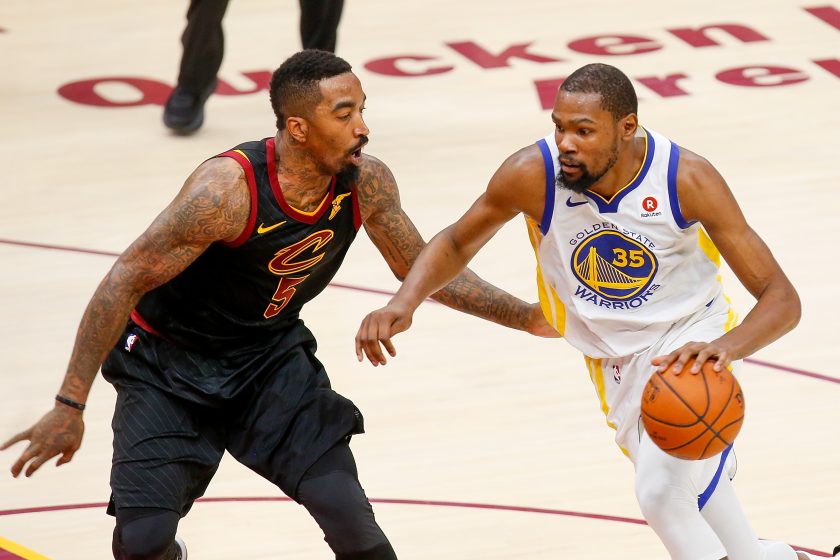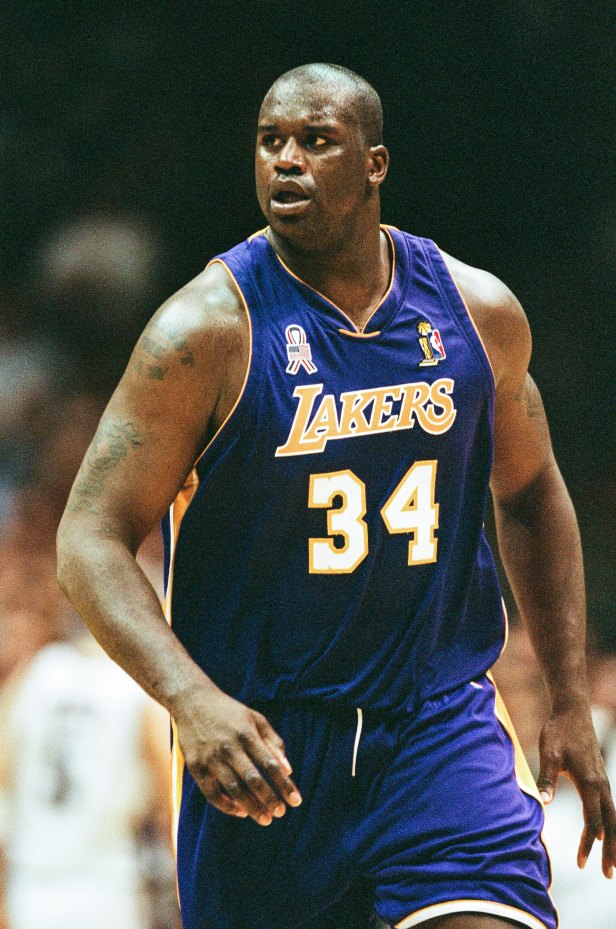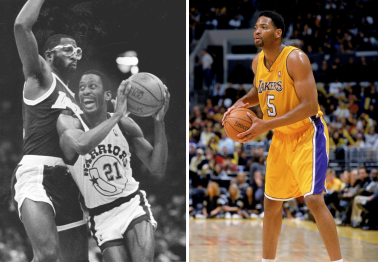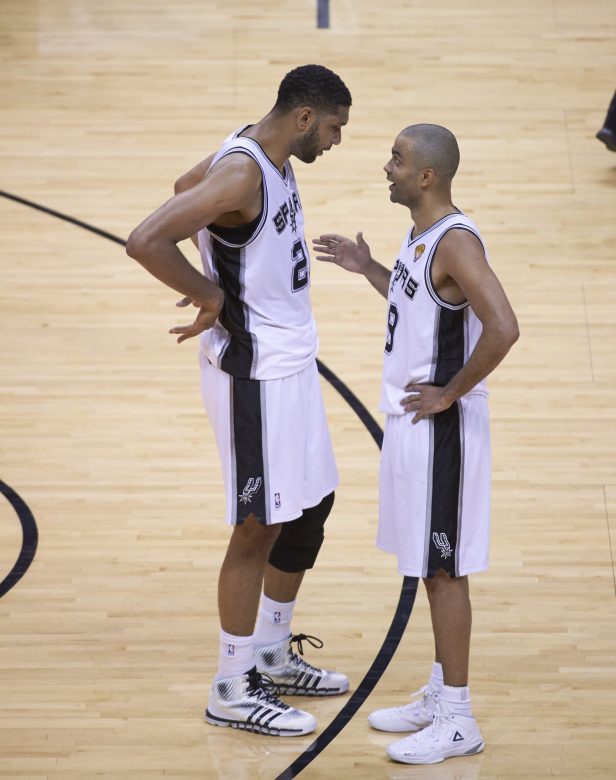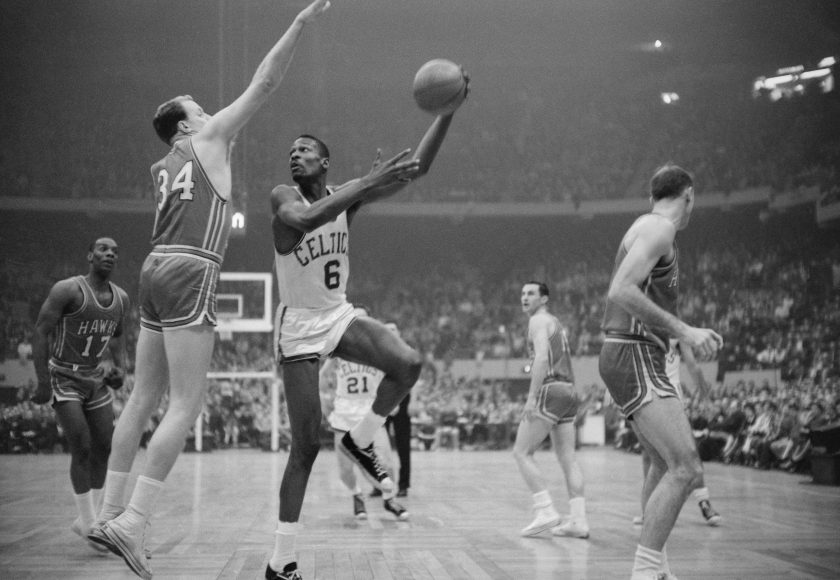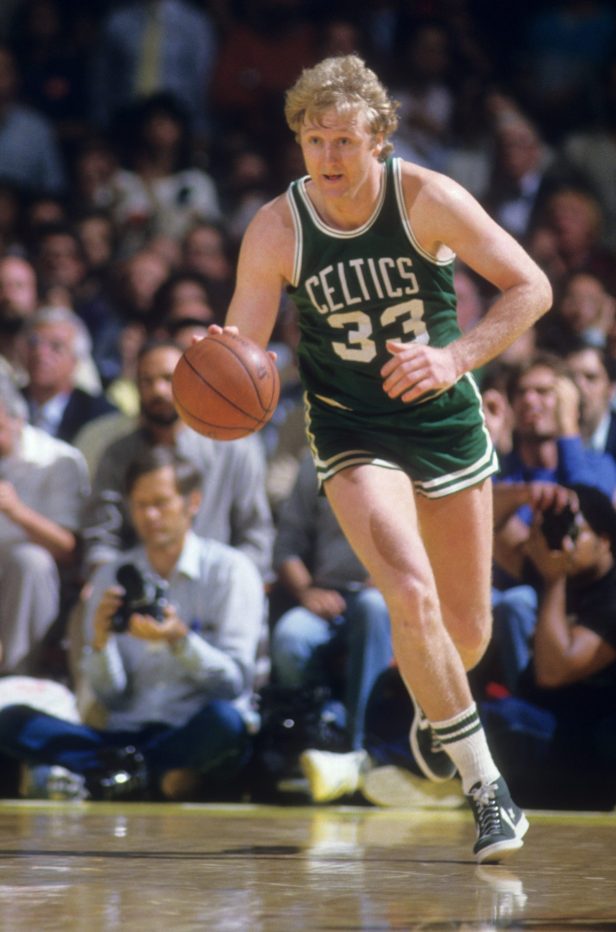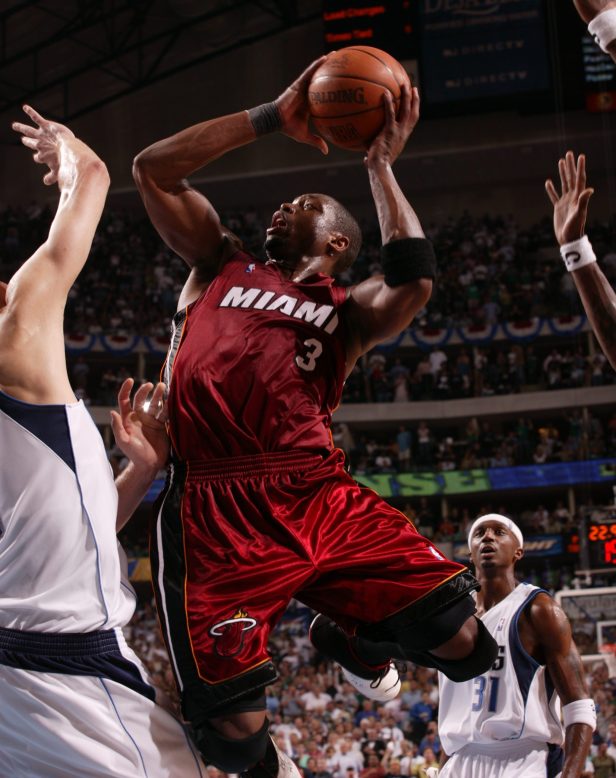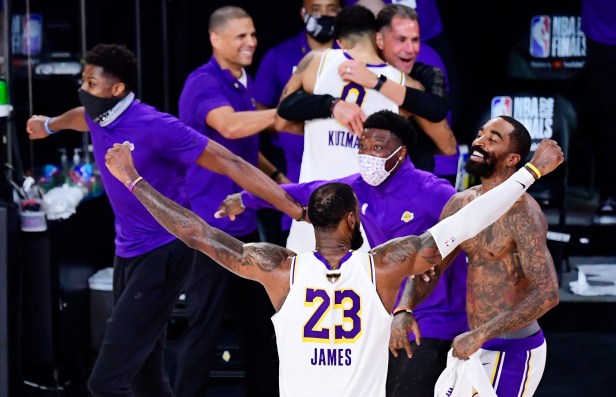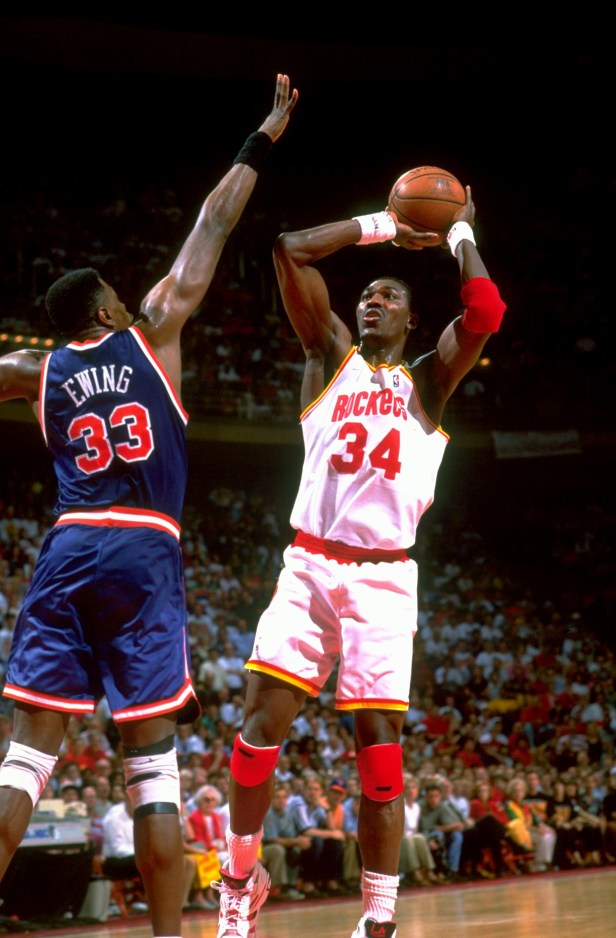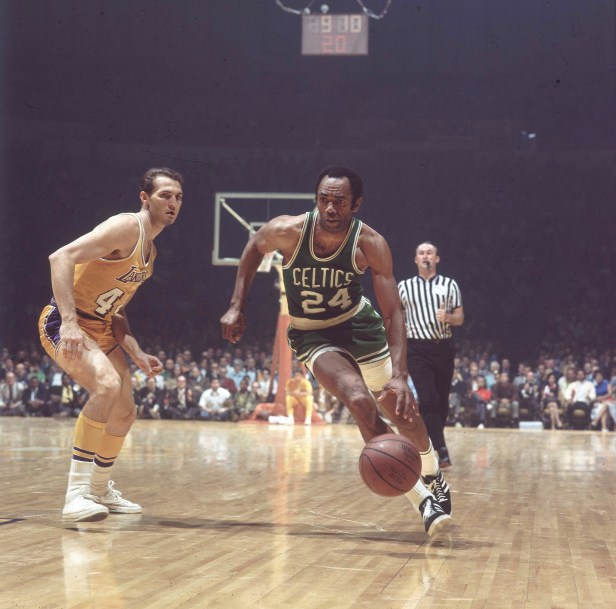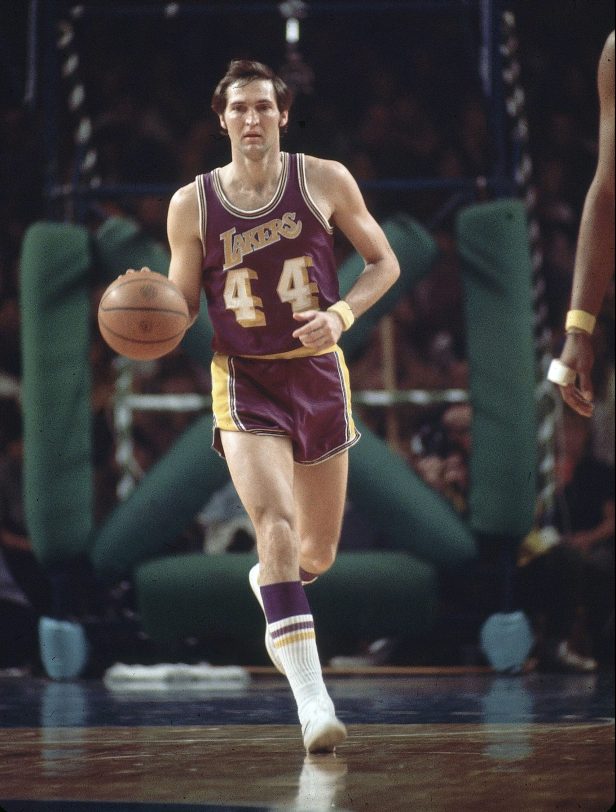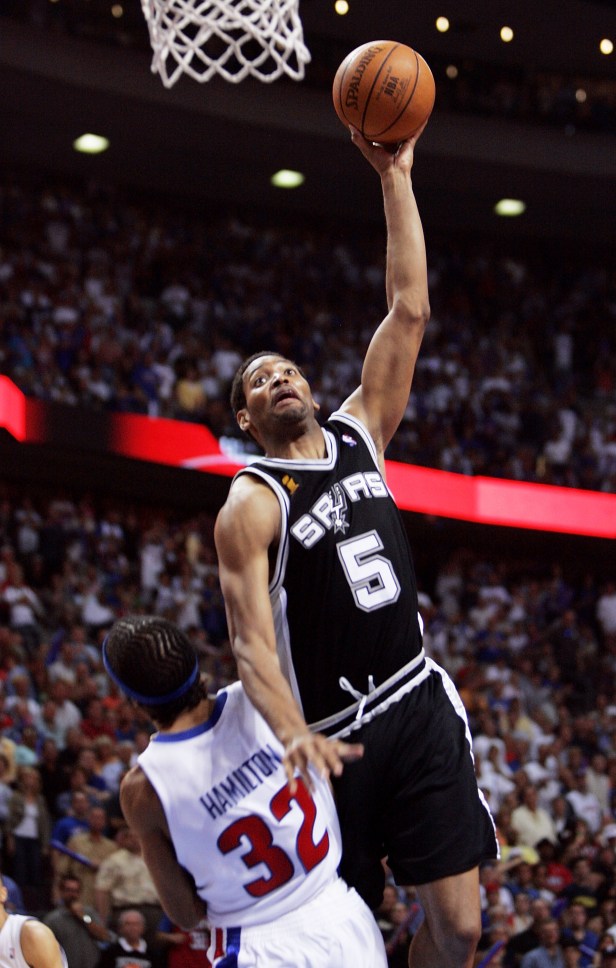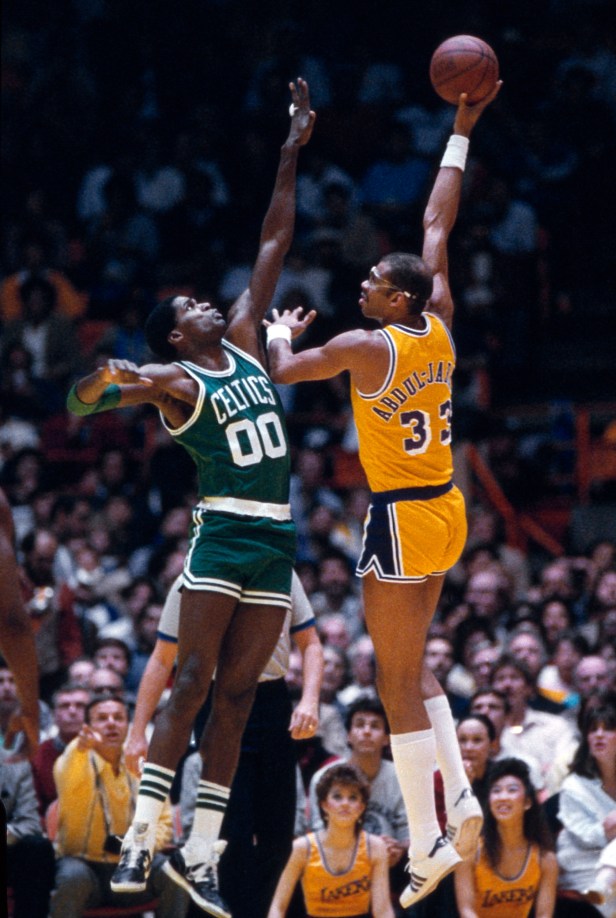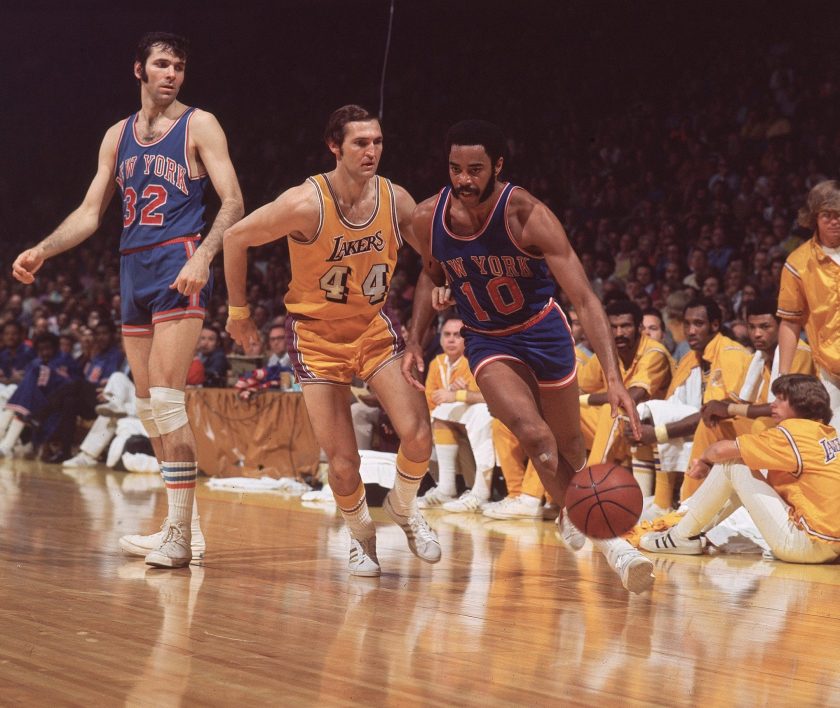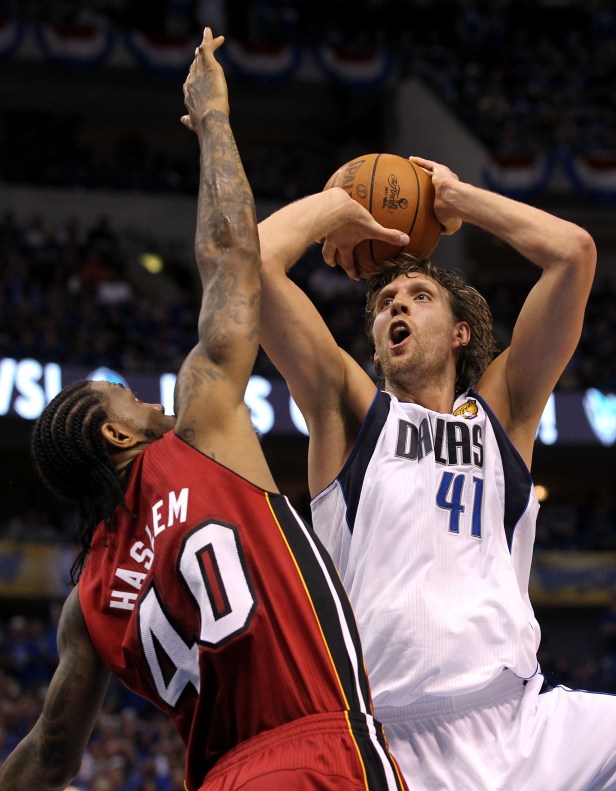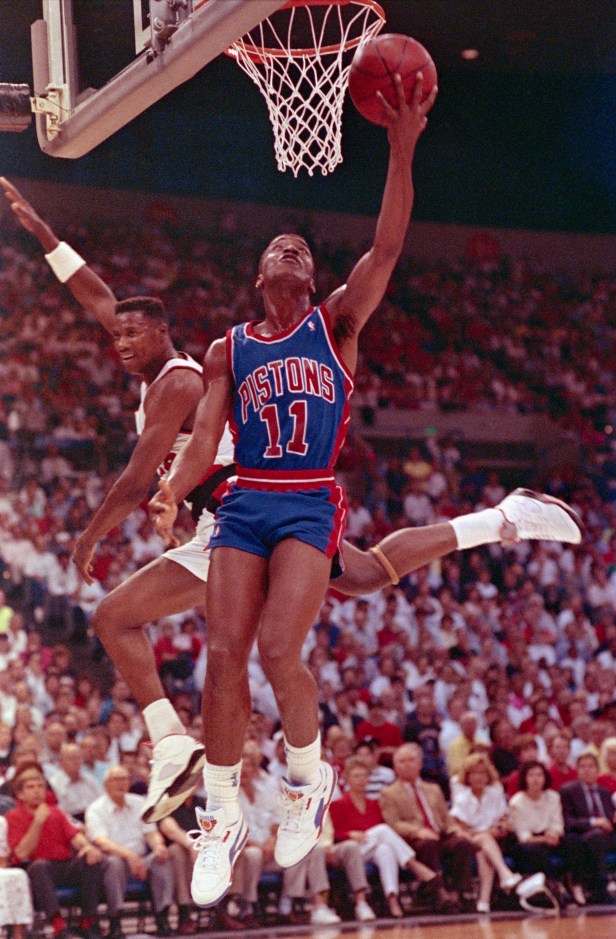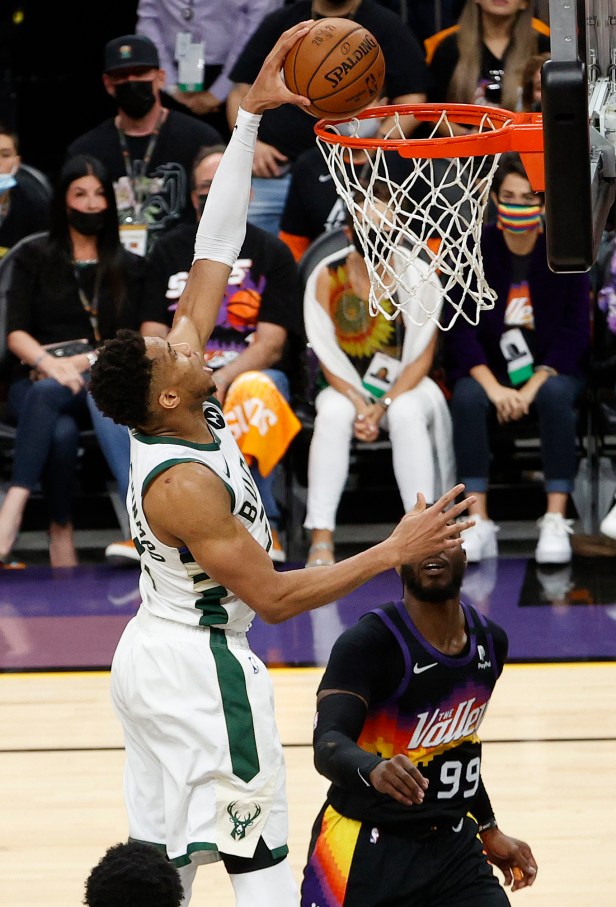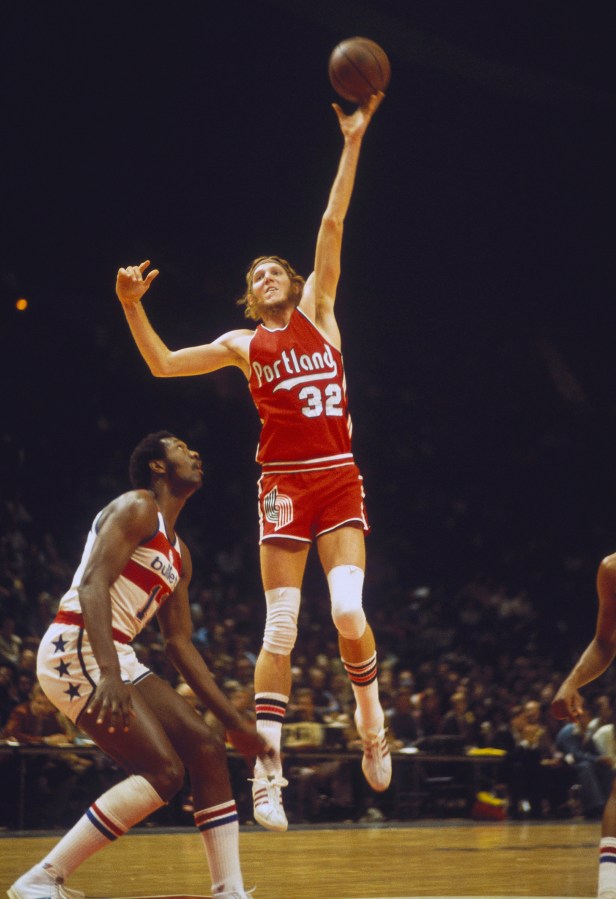The NBA postseason is where basketball legends are both made and broken. Some star players toil for a decade on bad teams before they get a shot at the postseason, let alone the NBA Finals (Bob Lanier and Mitch Richmond come to mind), and a lot of the ones who regularly do get there fail to show up in big moments (Karl Malone extremely comes to mind).
The pressure of the NBA Finals isn't for everyone, and it's not shocking that a lot of guys wilt under the heat. The Finals are littered with the memories of guys like Elvin Hayes, John Starks, Nick Anderson and Kobe Bryant (I said what I said) who just couldn't hack it. Flags may fly forever, but so do ignominious performances on the biggest possible stage.
But there are some players who want the ball with the game and season on the line and who show up over and over in the biggest possible moments. Maybe they aren't great 100-percent of the time (although some of them, including the exact guy you thought of when you read the title of this post, are), but everyone here has at least one signature NBA Finals moment. Many of them are among the greatest players ever, but a couple of them might surprise you — including one guy who will never make the Hall of Fame, yet is impossible to leave off this list. The common thread that unites them is this: there's a reason they all won so many rings.
Michael Jordan
If you're making a list like this, it starts and ends with one guy: Michael Jordan. Jordan won six NBA Finals MVPs, one for every time he appeared in the Finals with the Chicago Bulls. There was never any doubt, either; each of those years, he badly outplayed a significant rival — Magic Johnson and the Lakers in '91, Clyde Drexler and the Trail Blazers in '92, Charles Barkley and the Suns in '93, Gary Payton and the Sonics in '96, and Karl Malone and the Jazz in both '97 and '98. His career Finals numbers: 33.6 points, 6 rebounds, 6 assists on 48.1 percent shooting.
Though statistically his best performance came in the '93 Finals against Phoenix (he averaged 41 points that series), his best might have actually been the '97 Finals against the Utah Jazz, when he dropped 38 points in Game 5 while suffering from what was either food poisoning or the flu. The game has become known as the "Flu Game" and is considered one of the single greatest Finals performances in history. In the '98 Finals, Jordan dragged the Bulls over the finish line for his sixth title after Scottie Pippen didn't show up for the last two games of the series. I rooted against Michael Jordan for his entire career, and rooting against Michael Jordan and his spotless Finals record felt like picking a fight with the grim reaper.
Magic Johnson
Not every star could be Jordan, coming up huge in the NBA Finals in literally every appearance. Magic didn't always do it — his 1984 Finals performance featured numerous chokes in big moments — but he pretty much did in every other postseason opportunity. Magic won five rings as the best player on his team, winning three Finals MVP awards.
His greatest performance may have come right at the beginning: after Kareem Abdul-Jabbar went down with a busted ankle during Game 5 of the 1980 Finals, Magic started at center in the clinching Game 6, played all five positions over the course of the game, and thoroughly dumpstered the Philadelphia 76ers to the tune of 42 points, 15 rebounds and 7 assists. He nearly tossed up a triple double in the '87 Finals, averaging a LeBron-like 26.2/8/13 stat line. His career Finals numbers: 19.4 points, 7.9 rebounds, 11.7 assists (was there a bigger mortal lock for this article than "Magic Johnson averaged more than 10 assists per game for his career in the Finals?").
Kevin Durant
Don't let recent history sway you here; Kevin Durant is a two-time Finals MVP for a reason. "Slim Reaper" has averaged 30.3 points, 7.7 rebounds and 4.5 assists on 54.6 percent shooting and 44.8 percent three-point shooting across four Finals appearances, absolutely devastating the Cleveland Cavaliers in 2017 and 2018 on the way to his first two rings with the Golden State Warriors. Yes, his Nets team just got swept out of the postseason in 2022, but that doesn't change the fact Durant is one of the all-time NBA playoff greats.
Shaquille O'Neal
RELATED: The Los Angeles Lakers All-Time Starting 5 is a Who's Who of NBA Legends
Shaq was well-known for essentially taking time off during the regular season for much of his career, missing chunks of time and using the season to play his way into shape. Granted, the reason was because the refs allowed opposing players to grab his arms and beat the crap out of him for a solid decade, but the fact remains.
But when the playoffs rolled around, "The Big Diesel" would steamroll the league year after year — which the Lakers needed from him, since Kobe Bryant was often secretly terrible in the Finals. O'Neal won three consecutive Finals MVP awards from 2000-2002, tossing aside opposing players like a college senior against high school freshmen. His 2000 Finals numbers were absolutely silly: Shaq hung 38 points and 16.7 rebounds against the Indiana Pacers en route to his first title.
Tim Duncan
Tim Duncan spent his entire career carrying the San Antonio Spurs to the degree that people credibly thought Manu Ginobili and Tony Parker were Hall of Fame players; why should the Finals have been any different? "The Big Fundamental's" all-time Finals numbers don't look amazing (20.8 points, 13.3 rebounds), but a large part of that is two of his six Finals appearances occurred after his 36th birthday, when he had morphed his game into more of a supporting star who played excellent team defense (something you can't really measure with stats). You don't win five NBA championships and three NBA Finals MVPs on a fluke.
Bill Russell
RELATED: Bill Russell Refused to Accept His Hall of Fame Ring for 44 Years. Here's Why.
You don't win 11 championships in 13 seasons as the best player on your team by accident. Russell, the greatest defensive player of all time by a wide margin, absolutely lived for those big moments with the Boston Celtics: he may have only averaged 16.4 points for his career in the Finals, but he also averaged 24.5 rebounds (not a typo) and 4.8 assists. The only reason Russell doesn't own a Finals MVP is because the award didn't exist until his very last season — and that was the one year they gave the award to a guy from the losing team (we'll get to him).
Larry Bird
RELATED: The Boston Celtics All-Time Starting 5 Has More Rings Than a Jewelry Store
"Larry Legend" was an apt nickname, because after a while in the '80s, you just assumed Larry Bird was going to hit every possible big shot. Bird won two Finals MVP awards and should've won a third (they inexplicably gave it to Cedric Maxwell in 1984). Bird always saved his best for the biggest possible moments, to the point where his most memorable shot is the only one he didn't make, at the end of Game 4 of the 1987 Finals.
Dwyane Wade
Dwyane Wade was a shooting guard who couldn't really shoot — his career three point percentage was 29.3 percent and he wasn't exactly great in the midrange — but that didn't matter, because nobody has ever attacked the basket the way he did. His willingness to sacrifice his body for buckets and free throws was his single defining trait as a basketball player, and nowhere was this more evident than the playoffs. The 2006 Finals, when he won MVP, was his magnum opus: 34.7 points, 7.8 rebounds, 3.8 assists and roughly 5,000 free throws as he just kept hurling himself at the hoop over and over.
LeBron James
Remember when there was a time we thought LeBron didn't show up in big games? Boy, are those days over. 'Bron has won four Finals MVP awards, and it should be five; he was the best player in 2015, but his team lost, so they gave it to Andre Iguodala instead based on the fact LeBron didn't cook and eat him on the court. Hell, if Kyrie Irving hadn't hurt his knee in 2015, he probably would have that fifth MVP. LeBron is the only player to ever win Finals MVP for three different teams.
Hakeem Olajuwon
Ahem: 27.5 points, 10.6 rebounds, 3.4 assists, 3.1 blocks, 1.9 steals. Those are Hakeem's NBA Finals averages. It's hard to overstate his all-around excellence if you weren't there to see it in person, so let me put it this way: NBA players do not win titles singlehandedly. It simply does not happen...except for the one time it did, in 1994. Hakeem's greatest achievement is his two Finals MVP awards, both won against defensively dominant opposing centers, Patrick Ewing and Shaquille O'Neal. His greatest playoff performance wasn't even in the Finals: a 35.3-point, 12.5-rebound, 5-assist, 4.1-block dismantling of David Robinson (his biggest rival and only one of the best defensive players of the '90s) and the San Antonio Spurs in the '95 Western Conference Finals.
Sam Jones
The Boston Celtics won 11 Championships in the 1950s and '60s, and they didn't do it purely on the strength of Bill Russell. Of the many Hall of Fame guards who played with Russ — Bob Cousy, Bill Sharman, K.C. Jones — Sam Jones was the best, a prototypical athletic 2-guard who would've been tremendously helped by the three-point line. Jones was at his best in big moments — which is exactly how he got 10 rings in 12 seasons. His defining performance has to be the 1965 Finals, when he tossed up 27.8 points per game on 47 percent shooting to demolish the Lakers' title hopes.
Steph Curry
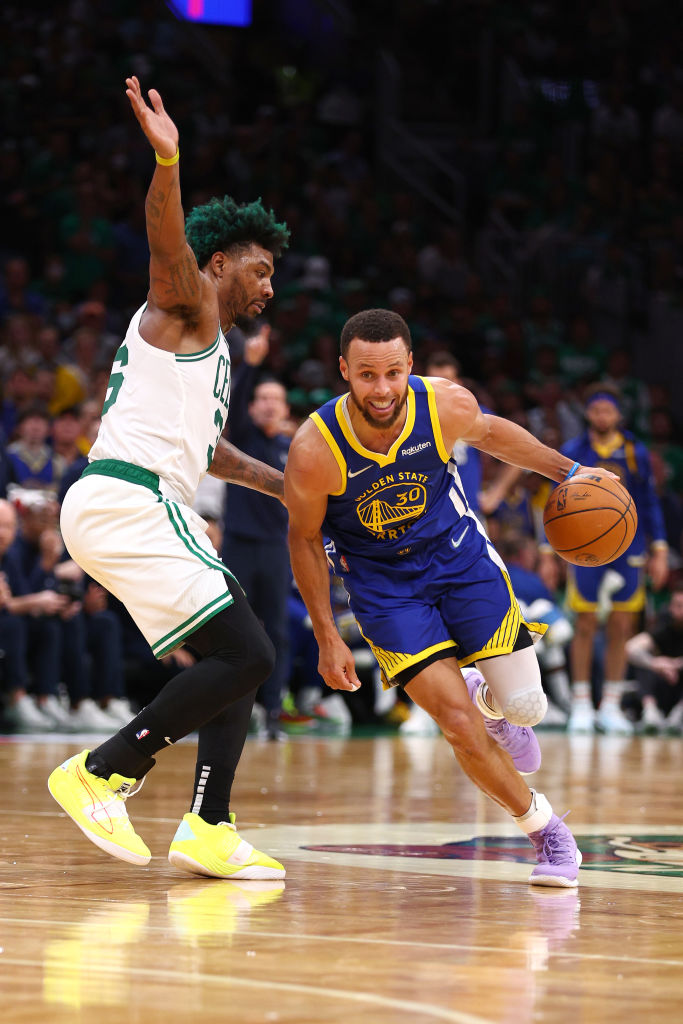
Elsa via Getty Images
Heading into the 2022 NBA Finals, the only thing Steph Curry was missing from his NBA resume was an NBA Finals MVP. He "fell short" during the Golden State Warriors' first three title runs, losing to Andre Iguodala and Kevin Durant twice, causing some pundits to question if the three-point king can step up when it matters most. However, he put that talk to rest in when he led Golden State to its fourth title in seven years over the Boston Celtics with a stat line of 31.2 points, 6 rebounds and 5 assists per game. The point guard not only took home the Finals MVP, he cemented himself as a top-five player of all time.
Expectations are sky high when you're a player of Curry's stature, so even though he only has one Finals MVP in six appearances, he'll gladly take four rings. Oh yeah, and in 34 career Finals games, he's put up 27.3 points, 5.8 rebounds and 6 assists per game. Not bad.
Jerry West
You don't become the NBA's logo or acquire the nickname "Mr. Clutch" by accident. For most of his career, Jerry West was the NBA's version of Sisyphus, making it to the Finals every single season, then losing through no fault of his own. West routinely posted huge numbers (his career finals average is 30.5 points per game) and came up in big moment after big moment (hence the nickname), but he just could not get past Russell's Celtics. The '69 Finals was his opus: 37.9 points, 4.7 rebounds, 7.4 assists — numbers so good he became the first (and to date, only) player to ever win NBA Finals MVP in a losing effort.
Robert Horry
Robert Horry is the litmus test for basketball. He averaged 7 points and 4.8 rebounds for his career, never once sniffed an All-Star team or an All-Defense team...and yet purists rave about the guy. Meanwhile, stat-heads look at Horry and think the numbers are self-evident, that he's one of the most overrated players ever.
But here's the thing: Robert Horry's Wikipedia page contains an entire section devoted to "Notable playoff clutch plays" with so many entries I'd honestly forgotten several of them.
Three of the listed entries occurred in three separate Finals — all for different teams, all of whom ultimately won titles. Once or twice is a fluke, but when you have at least eight signature clutch playoff moments in seven different years, that's a pattern. There was a 13-year period in NBA history where either Horry or Steve Kerr (the other best role player of the '90s and early 2000s) won a title 12 out of 13 seasons (11 straight from '94-'03). If you rooted against Hakeem's Rockets, the Shaq/Kobe Lakers or Duncan's Spurs, Robert Horry scared the bejesus out of you. Other than Jordan, no player has ever been more relentlessly terrifying to opposing fans than Robert Horry.
Kareem Abdul-Jabbar
RELATED: The 25 Best Jerseys in NBA History Will Always Be Colorfully Awesome
Any time you own two NBA Finals MVP trophies, it's a sign — and Kareem would have three if he hadn't destroyed his ankle in Game 5 of the 1980 Finals (paving the way for the Magic game mentioned above). Kareem played in 10 NBA Finals, so the sample size here is huge, and the numbers hold up: 23.5 points, 9.5 rebounds, 3.2 assists on 52.3 percent percent shooting. All of those numbers would be higher if not for the '88 and '89 Finals, when a 40- and 41-year-old Kareem had become a glorified role player (and still found ways to help the Lakers). No team has been more blessed with great big men than the Los Angeles Lakers (George Mikan, Wilt Chamberlain, Shaq, even Pau Gasol), and Kareem stands above all of them for a reason.
Walt Frazier
Walt "Clyde" Frazier has been forgotten in the pantheon of great point guards, which is a shame, because the man was an assassin. In addition to being a talented, efficient scorer (49-percent field goals for his career, an exceptional mark for a guard) and a great playmaker, Frazier may have been the best defensive guard ever not named Gary Payton. He also got better when it mattered, and might have authored the single greatest Game 7 performance in NBA Finals history: 1970, when he dropped 36 points, 19 assists, 7 rebounds, and five steals for the champion New York Knicks. It's one of the greatest single game finals performances ever, if not the greatest.
Dirk Nowitzki
After 2006, nobody would've believed Nowitzki would get here. In his first Finals that year against the Miami Heat, the big German averaged a putrid 39 percent from the floor and got spun around like a top on defense by the likes of Antoine Walker. Much like John Elway, though, he got another crack at it later. Nowitzki's Dallas Mavericks faced the Heat again in 2011, and this time, he left no doubt. His field goal percentage in the series (41 percent) is artificially deflated by a gutsy Game 4 when he went 6-19 with a 101 degree fever and hit the game-winning shot. There was never any doubt Dirk was going to win Finals MVP that year.
Isiah Thomas
Ironically, Isiah's greatest Finals performance is the time he didn't win the title. "Zeke's" 1988 NBA Finals Game 6 is an absolute masterwork: 43 points on 18-32 shooting with 8 assists and 6 steals — and the last quarter played on an ankle sprain so severe he could barely stand up. He didn't get a ring that year — thanks to the ankle injury, the Lakers outlasted him — but he would win the next two NBA titles with the Detroit Pistons, including a Finals MVP award in the 1990 series.
Giannis Antetokounmpo
I know it's only been a year and one Finals appearance, but how can you leave Giannis off after what we saw last season? "The Greek Freak" tossed up an unconscionable 35.2/13.2/5 stat line on an unfathomable 61.8-percent shooting in the 2021 Finals, tossing the Milwaukee Bucks on his back and carrying them over the Phoenix Suns to their first title since 1971. It's long been true that Giannis is the league's biggest matchup nightmare — how on Earth do you stop a 6-foot-11 power forward who can dunk from the three-point line, lives to feast on the glass and can pass better than any big man on the planet other than Nikola Jokic? As Phoenix learned in the 2021 Finals...you really can't.
Bill Walton
Bill Walton only made two NBA All-Star teams, won one MVP award (along with a Sixth Man of the Year award nearly a decade later), yet cruised into the Hall of Fame...and honestly, that seems pretty fair. Walton's 1977 NBA Finals performance is a masterclass in how to win: he averaged 18.5 points, 19 rebounds (the highest mark of any Finals MVP after the 1976 NBA-ABA merger) and 5.2 assists as the fulcrum around which Portland's offense turned. Walton may be the worst announcer of all time, but holy hell, was he good in the Finals.
